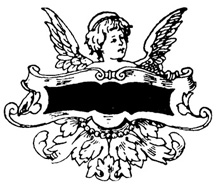nyone who desires but acts not breeds pestilence.
-William Blake
Those of us who love to write want to call ourselves ‘writer’ but may feel hesitant to use the word. Have I been published? Have I been published enough times? Is my writing of any worth?
What is the definition of a writer? The Merriam-Webster dictionary says it is “one who writes.”
What is it to write? To write, the dictionary says, comes from the Old English word to scratch, draw, or inscribe. It is also akin to the Old High German word that means ‘to tear.’
What is it to scratch? To scratch is ‘to scrape or dig with the claws or nails.’ It is also ‘to relieve itching.’ What is an itch? ‘To have a restless desire or hankering for something.’ A writer scratches the itch he/she feels to relieve something.
And what is this restless desire? Where does it come from? We’ll come back to that.
In any case, if it’s there and nothing is done, it creates a disturbance. But when there are tools—a piece of ground, soft enough for impressions to be made, and a stick; or a stone and chisel; or parchment and quill; or paper and pen; or typewriter, or computer—then the person, the ‘one who writes,’ can scratch the itch. He or she can tear into some substance, and can also tear into the itch.
By scratching or drawing or writing we leave a mark on something, something that will (we hope) last longer than we do. Because part of the desire to write, for most of us, is also the desire to be seen, or better yet, heard. We want to communicate something to others, something lasting.
Of course, in the end, everything will pass away.
But wait. Maybe that’s not entirely true. Because words in and of themselves are not the only issue, are they? Words are a tool. Words can be a beautiful tool, an artistic tool. But isn’t the meaning behind them, or what they point to, the thing that lasts? When someone reads the words I write, some essence is carried forward into the world. The magazine, book, or even computer will one day be destroyed. But if someone reads what I’ve written, and if what I’ve written leaves an impression, some essence will live on.
But then we need to determine if what we have to say has value and if it deserves to live on. What is value and who is to determine it? Value is what is of importance—but to whom? We often speak of people having different values. What is of value to one person isn’t necessarily of the same value to another.
There are also universal values. Values that are beneficial to humanity as a whole.
In any case, each of us, each writer, has to determine whether what we have to say has value, and how we can try to come close to communicating what we consider to be of value. But even if we do manage to make our words known, there are risks involved in being seen, in being heard. We risk being thought of as foolish, or wrong, or untalented. We risk criticism and disdain.
Another risk is that we may be forever unable to translate that inner urge, itch, feeling, clearly enough; there will always be a gap (at least for me), because the words can only ever be an approximation of a deeper feeling, a more profound meaning. And my skill will always fall short of my expectations. I will never write as well as I would like.
Let’s ask again where the urge to be heard originates. During the Renaissance, it was said that each of us has a daemon—our own particular talent, ability, or destiny, that we are born to try and fulfill. The daemon always presents itself as a challenge. The daemon unsettles us, creates the desire—the longing—to create. But this daemon is never satisfied and forever urges us on.
We have an innate need to draw closer to what calls us, so we take risks. And we are rewarded by the love we feel for what we do. Those of us who love to write—even if we will never be counted among the best writers, or the most known—will continue to scratch, to draw, to inscribe, to tear, and maybe even to form, to fashion, to mold words. We hope they will have value—even if only partially, and even if only to a few.


